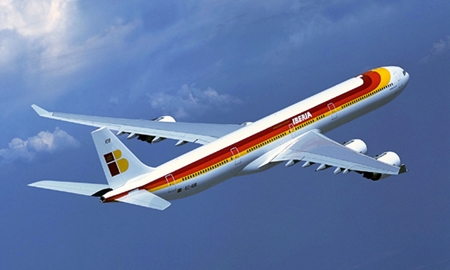The frenzied buzz of progress can be heard across Equatorial Guinea as the country moves ahead of its neighbors with an impressive number of development projects led by the government Ministry for Transport, Post, Technology and Telecommunications. The transport and telecommunications sectors are at the forefront of the government’s plans for development as part of the previously established Horizon 2020 program – expanding and creating more access via the country’s ports, airports and roads is seen as key towards spurring on trade and the migration of people.
The road system is undergoing a substantial upgrade with the aim of connecting all cities with paved highways – making Equatorial Guinea one of the few African countries to do so.
The initiative will facilitate the circulation of people and commerce and thus serve as a boon to the economy. Improved roads will also raise the standard of living for citizens, reports the Ministry, providing easier access in and out of previously difficult to access areas.
Surfacing the roads comes with challenges due to the majority of the country being covered in dense rainforest. However, developments have been impressive, with approximately 80% of the nation’s roads now being paved to withstand mudslides and torrential rains. One standout example is the road leading to the Hotel Sofitel Sipopo, which has been constructed through a dense jungle. The new roads are essential for the development of other services that contribute to the welfare of the nation, such as schools and hospitals.
Major investment has also been made in a number of ports, in order to put the country on the map in terms of servicing the international, regional and domestic oil and gas industries. The expansion of the ports will reduce waiting time for ships, with the knock-on effect of lower freight rates. The ports under development include Luba Freeport, the K5 Oil Center and other natural deep-water ports around Malabo on Bioko Island, and Bata on the mainland, which are increasingly interesting locations for freight-forwarding and logistics companies.
Equatorial Guinea’s privileged location means its ports can serve as regional entry points, which connect occidental markets in the east via the Cape of Good Hope, and western markets via the Atlantic. Somagec GC, the country’s largest construction company, is renovating the port of Malabo as part of a project valued at $500 billion. Once completed, the port will be one of the deepest ports in Central Africa with a length of 1.2 kilometers and the capacity to handle ships with up to 10,000 containers – it will be able to handle the majority of the world’s container ships.
Likewise, the port of Bata, the most important in the country, is also undergoing expansion. In an initiative begun in 2009 and due for completion in 2014, China Road & Bridge Corp. is building a 2 kilometer-long jetty. Meanwhile, the duty-free port of Luba is under development by a consortium of the British Incat and U.S. Amerada Hess. And Cogo port will be expanded to 360 meters. These developments are testament to the importance Equatorial Guinea assigns to international sea trade and the significance of its main export market – the USA.
Airports too are undergoing expansion and Bata airport can now cater to the world’s largest passenger aircraft, the A380. New airports have been built at Malabo, Mongomo Annobon and Corisco Island. According to the Ministry, for decades Annobon had no airport or harbor, and it was an adventure to travel to Malabo or Bata. But today Annobon is “unlocked”.
Complimenting the growth of transport and infrastructure is the telecommunications industry, where there is great potential for the continued growth of the mobile telecom sector. Analysis suggests that if the rate of mobile phone market penetration continues to grow at current rates, that it will reach 40% in the next three years and cell phones could eventually be used by 80% of the population – meaning substantial opportunity for investment.
Funding for all of the government’s development projects is thanks to Equatorial Guinea’s oil. Though, according to the Ministry, the oil itself is not solely responsible for transforming the country, the push comes from the political will of the rulers – many countries have also had the opportunity to exploit oil and yet have not achieved satisfactory results.
The Ministry also cites the peace and stability of the country as a central pillar in its development, and is openly encouraging foreign investors to visit and experience this exciting era of fast-paced progress for themselves. Equatorial Guinea is truly evolving.

0 COMMENTS